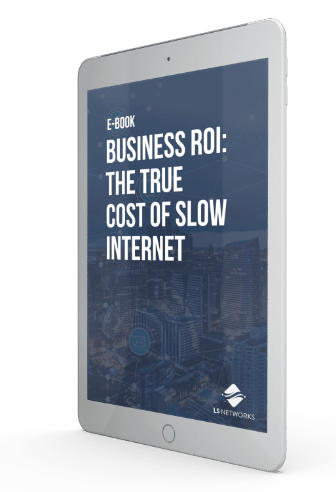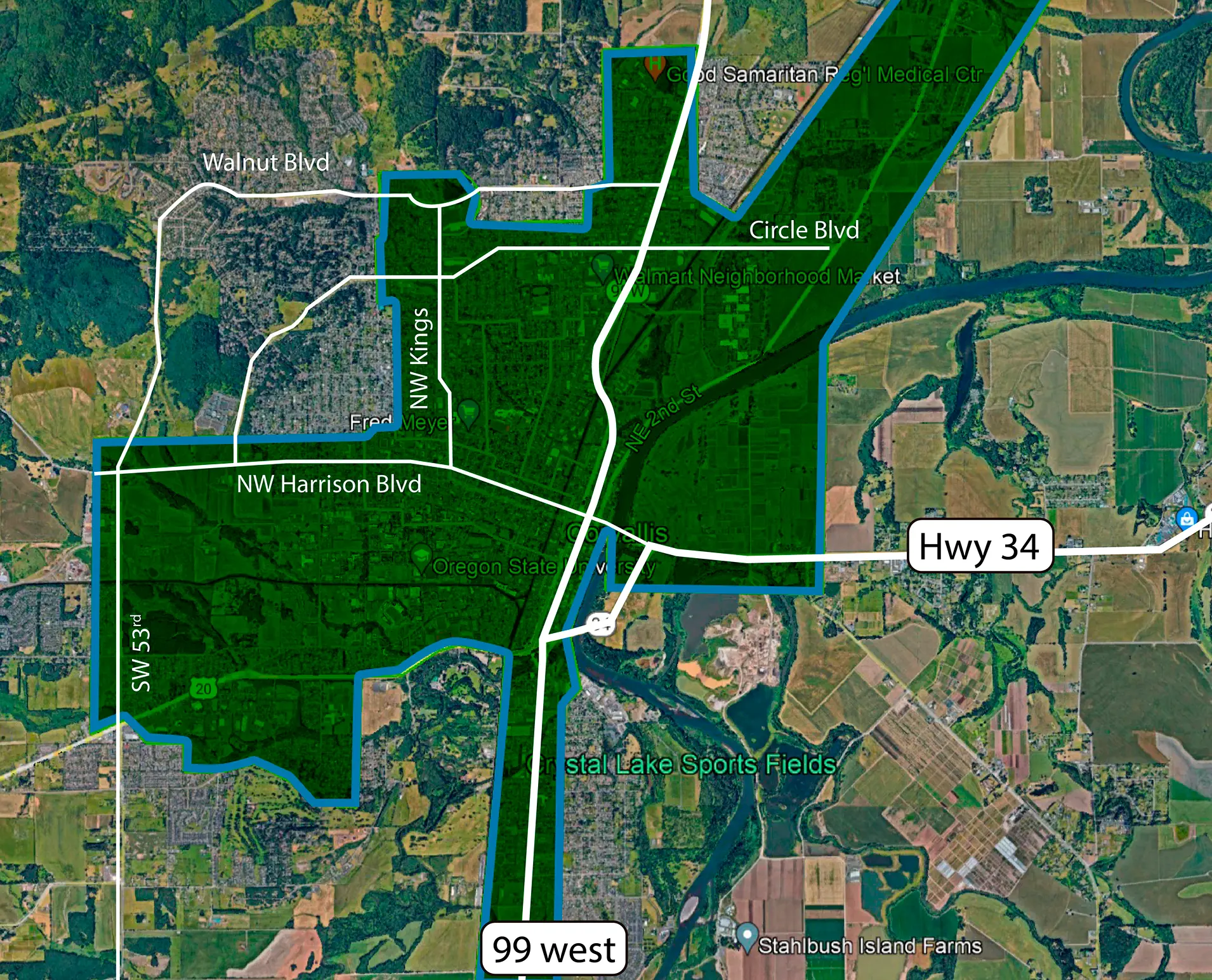Understanding Your LS Networks Bill: A Guide to Charges, Fees, and Taxes
LS Networks is committed to operating as transparently as possible and investing our resources into providing the best network solutions for our customers. Below, we break down the details of our billing practices, taxes, fees, and surcharges. If you have any questions about these documents, please contact us.
Terms and Conditions of the Master Services Agreement:
Certain Terms and Conditions of the Standard Commercial Master Services Agreement are changed from time to time. By continuing to be enrolled in, use, or pay for the Services, Customer agrees to these changes.
Federal, State, and Local Taxes
LS Networks collects federal, state, local, and foreign sales, use, excise, utility, gross receipts, and value-added taxes. These charges include:
- Tax-like charges to recover amounts LS Networks is required or permitted by a governmental or quasi-governmental authority to collect from others or pay to others in support of statutory or regulatory funds or programs
- All other tax-like charges that are imposed or operate like taxes but are not directly referred to as taxes
Tax-Related Surcharges
In addition to taxes, LS Networks imposes surcharges to recover various regulatory fees:
- A tax-related surcharge or other surcharges to recover a tax or fee imposed in a jurisdiction that assesses or asserts a claim of right to assess:
- A gross receipts tax, license tax, or other tax-like charges on LS Networks’ gross receipts, revenues, or operations
- A tax on interstate access charges incurred by LS Networks for access to telephone exchanges based on the amount paid for interstate access charges
- Franchise Fees that allows the LS Networks to recover local government franchise fees and right of way costs incurred for the use of the public right-of-way
- A Regulatory Cost Recovery Fee that allows LS Networks to recover expenses such as but not limited to, federal and state regulatory and license fees and reporting, fees to fund and comply with telecommunications programs designed to provide a public benefit
Internal Billing Reviews and Audits
LS Networks conducts internal reviews of its billing and taxes, fees, and surcharges practices and is periodically subject to review and audit by various tax and regulatory authorities. These audits and reviews are specifically designed to assess the reasonableness of LS Networks’ assessed taxes, fees, and surcharges. In the event a review or audit identifies any variance between a rule or regulation and LS Networks’ practices, LS Networks amends its practices to achieve full compliance.
Handling Invalid Taxes, Fees, or Surcharges
If LS Networks collects a tax, fee, or surcharge which is then found to have been invalid and unenforceable, and if the amounts collected were retained by LS Networks or delivered over to the jurisdiction and returned to LS Networks may elect to reduce service rates for a fixed period in order to pass on to customers an amount equivalent to the amounts collected. Alternatively, LS Networks may credit or refund such amounts to affected customers (less reasonable administrative costs) or negotiate an arrangement with the jurisdiction to provide a future benefit for customers in that jurisdiction.
Customer Tax-Exempt Status
In some situations, certain customers may be exempt from certain taxes, fees, and surcharges. LS Networks does not determine a customer’s tax-exempt status. Customers may submit proof of exemption by contacting Customer Support and submitting a duly authorized exemption certificate. LS Networks will exempt the customer as required by law, effective on the date LS Networks receives the properly executed certificate.
*Some charges are not eligible for exemption.
It is the customer’s responsibility to advise LS Networks of its tax-exempt status. LS Networks will bill taxes and surcharges until proper notice of exempt status and properly executed exemption documentation are provided.
Federal, State, and Local Taxes, Fees, and Surcharges
Below are details of the various federal, state, and local taxes, fees, and surcharges that LS Networks assesses to its customers. Most of these charges are imposed directly on the customer and are collected and remitted by LS Networks as an agent for the taxing authority.
Federal Universal Service Fund (FUSF)
The Federal Universal Service Fund (FUSF) surcharge is billed at the FUSF rate established by the FCC. The rate changes from time to time, generally quarterly. It is a regulatory charge, not a tax. The FUSF surcharge applies to interstate telecommunications services subject to direct regulation by the FCC as well as to interconnected VoIP services.
All telecommunications providers that offer interstate data, VoIP, data, and other regulated services in the United States are required by the FCC to contribute on an equitable and non-discriminatory basis to the FUSF.
FUSF charges are: (i) calculated after the application of promotional and other discounts; (ii) not eligible to receive promotional or any other discounts; (iii) not included to determine satisfaction of volume or minimum purchase requirements; (iv) calculated based upon the rates and charges applicable to the Customer’s total interstate service unless otherwise specified; (v) apply to tax-like and/or tax-related surcharges and; (vi) not applicable to calls using Telecommunications Relay Services.
FUSF is an FCC program designed to ensure affordable access to telecommunications services to low-income customers, rural areas, schools, libraries, and rural healthcare facilities. Congress established the FUSF to promote and encourage telecommunications infrastructure and service availability nationwide.
Taxes are generally assessed on the FUSF surcharge. It is important to understand that the FUSF surcharge is not a tax. It is a regulatory fee that the FCC imposes on telecommunications carriers on the voice and data revenues they collect. The FCC allows carriers to recover the cost of the surcharge from their end-user customers. Thus, the FUSF surcharge is not considered a tax and must be taxed as normal revenues.
A Customer will not be required to pay the FUSF if it demonstrates to LS Networks’ reasonable satisfaction that it is acquiring LS Networks’ services for resale (i.e., not for internal use) and is contributing directly to the government’s Universal Service funding programs. Customers may submit proof of an exemption by following the “Submit FUSF Exemption Certificate” link found on the Customer Support page of LS Networks’ website.
Federal Excise Tax
A required federal tax on some types of voice services.
State, County, and City Sales Taxes
Local taxes imposed on the sale of communications services.
FCC Fee – Toll-Free Number
This fee is directly assessed by the FCC on all interstate carriers providing voice services on a per-telephone number basis. As these numbers are designed to allow callers to call outside their locale without incurring a charge, the FCC recoups a portion of the costs it incurs to administer this program.
E-911 Surcharge
Funds state and locality 911 systems along with other emergency services.
State Universal Service Fund Surcharges
State level Universal Service Funds are designed to ensure affordable telecommunications service for all Customers in a state, especially residents in high-cost rural areas and low-income Customers. These surcharges are comparable to the FUSF surcharge and are assessed on intra-state regulated services.
State and Local Right-of-Way Fees/Franchise Fees
Fees are paid to local governments as compensation for LS Networks’ use of public rights-of-way to bring services to its customers. Rates and applications vary based on the jurisdiction of purchased services. The Telecommunications Act of 1996 permits telecommunications operators to recover regulatory fees from telecommunications subscribers in 12 monthly installments. These fees are not covered by existing exemption policies.
Oregon Rural Service Protection Fund (OR RSPF Surcharge)
Oregon Rural Service Protection Fund (OR RSPF Surcharge): Funds the Oregon program ensuring adequate and affordable telephone services, and provides funding for the Oregon Telephone Assistance Program, Telecommunications Devices Access Program, and Oregon Telecommunications Relay Service program.
In addition to the fees, taxes, and surcharges discussed above, LS Networks charges the following to recover fees imposed on the company for doing business in certain jurisdictions. These fees are both consistent with our master services agreement and standard industry practice. These fees are allowed under our standard master services agreement, and many carriers recover these fees in the form of surcharges and fees.
Regulatory Cost Recovery Fee: A surcharge equal to 3% of all applicable charges appearing on a customer’s invoice will apply to all telecommunications services and VoIP services. This fee is not a tax or government charge. This Fee recovers a portion of the costs LS Networks incurs to comply with, implement, and administer certain federal, state, and local laws, rules, regulations, and programs. Regulatory matters attributed to this fee include, but are not limited to, the following: complying with Ray Baum’s Act and Kari’s Law, ongoing systems management and reporting required under STIR/SHAKEN regulations (anti-robocalling laws), reporting and filing of USAC service details and FUSF reporting, filing and ongoing compliance reporting with local, state and federal permitting programs, participation in and reporting to the FCC Broadband Mapping Program, and other associated detailed service location filings.
Other Taxes, Fees, and Service Charges (OTFS): In addition to the other charges for services, OTFS will apply a tax-related charge of 7% to the total invoice amount after the application of applicable discounts and credits. The OTFS is not a tax or government charge. The OTFS recovers a proportionate amount paid by LS Networks to various jurisdictions in order to provide services to its customers. The following are assessed under the OTFS: State Utilities Commissions Fees and FCC Fees imposed on LS Networks by the commissions to support network access, operational costs, and programs; costs of maintaining local business licenses and permits other than franchise fees; property taxes imposed by various taxing jurisdictions and; other fees and taxes imposed on LS Networks’ gross receipts, revenues or operations as a result of its business of providing telecommunications services.
Clarity and Commitment in Billing
Transparency is at the core of LS Networks; we keep things clear about your bill. If you have questions about your bill, tax exemptions, or the different charges you see, our Customer Support team can assist you! We are committed to providing reliable service with a clear understanding of the fees involved so that our customers have confidence in the value they receive.



